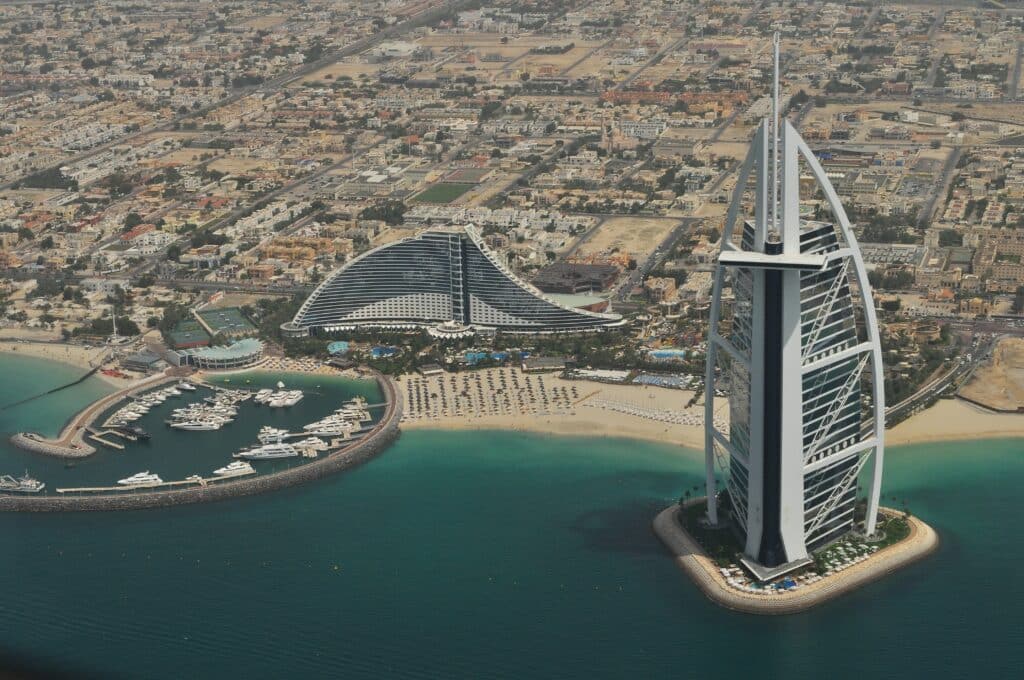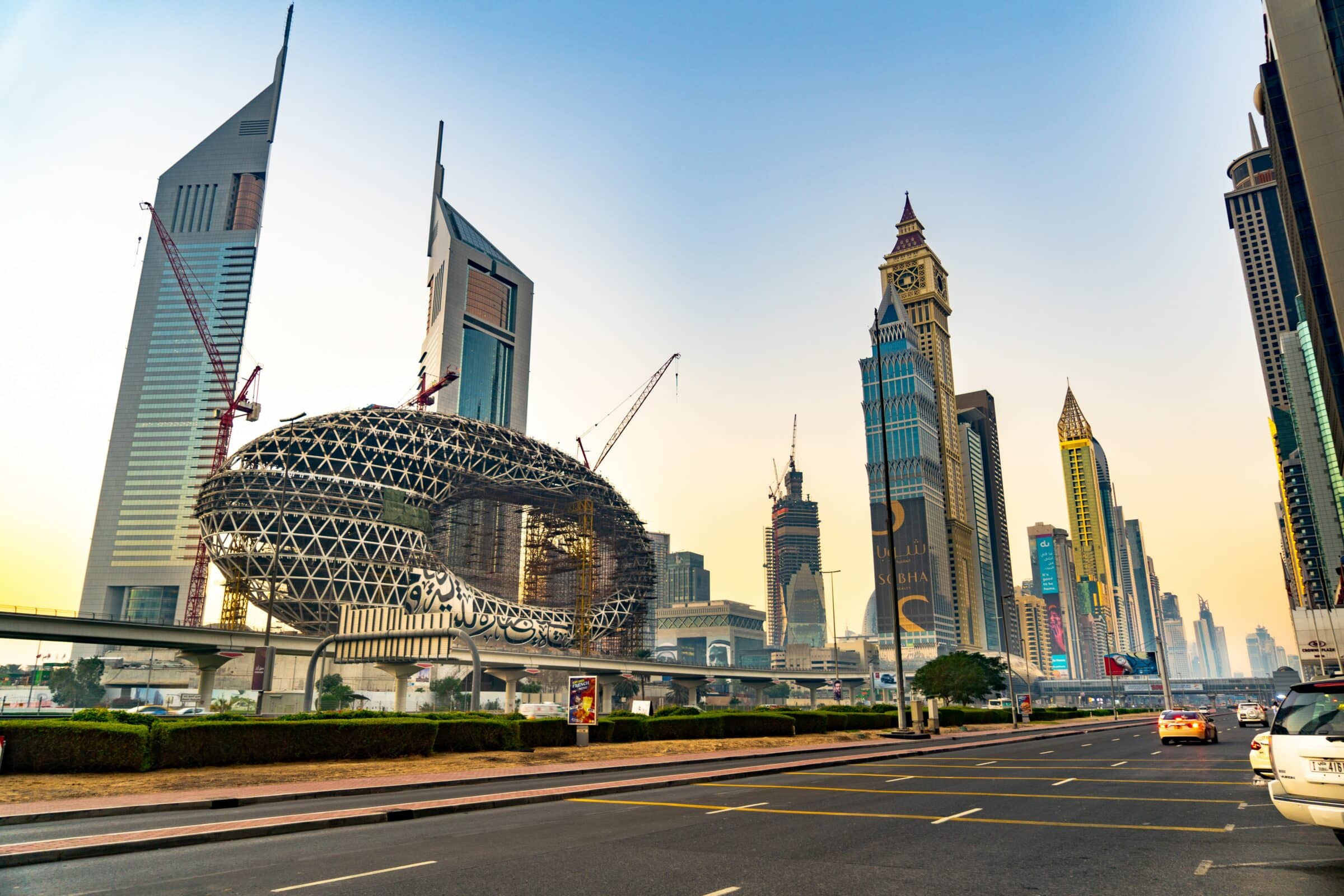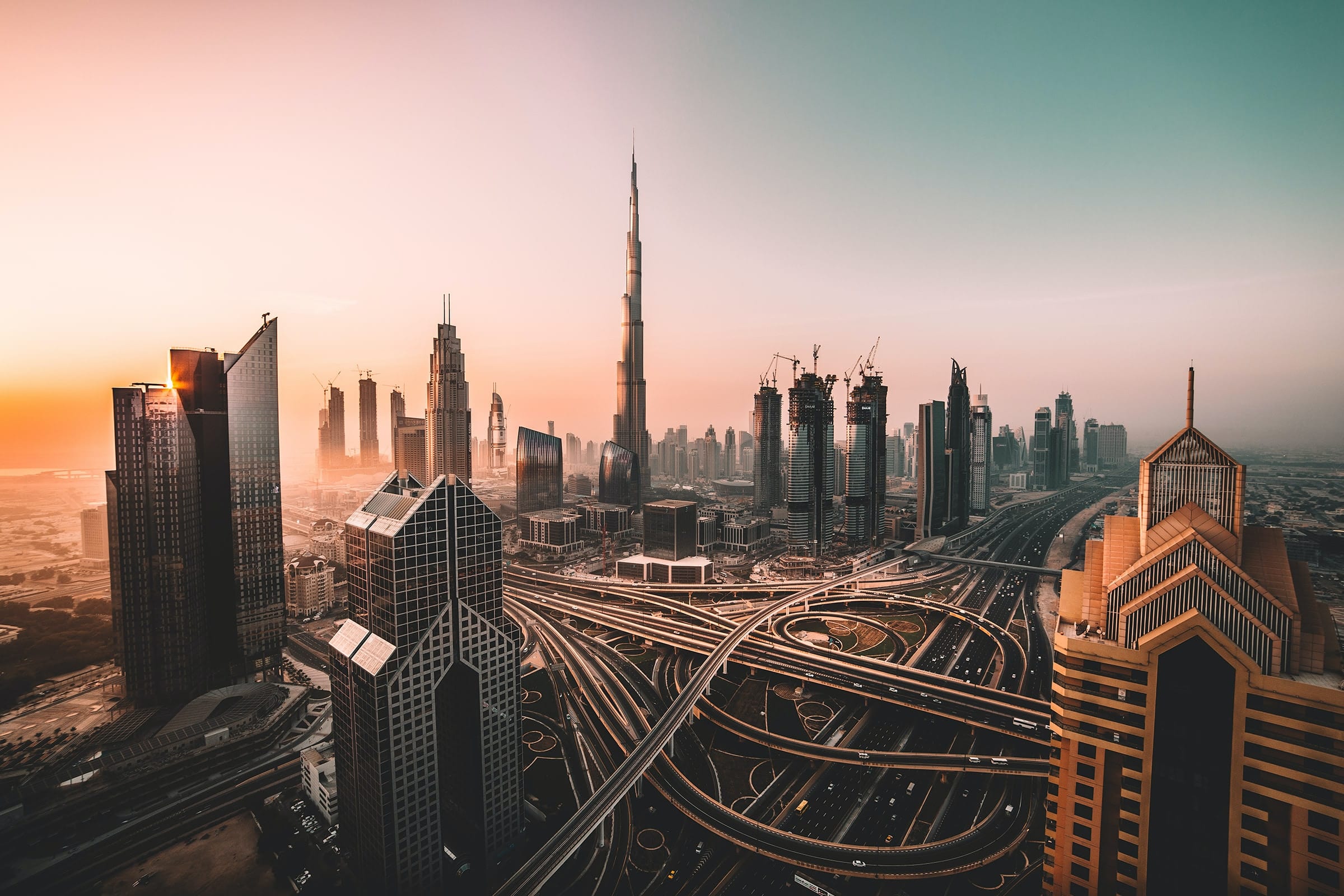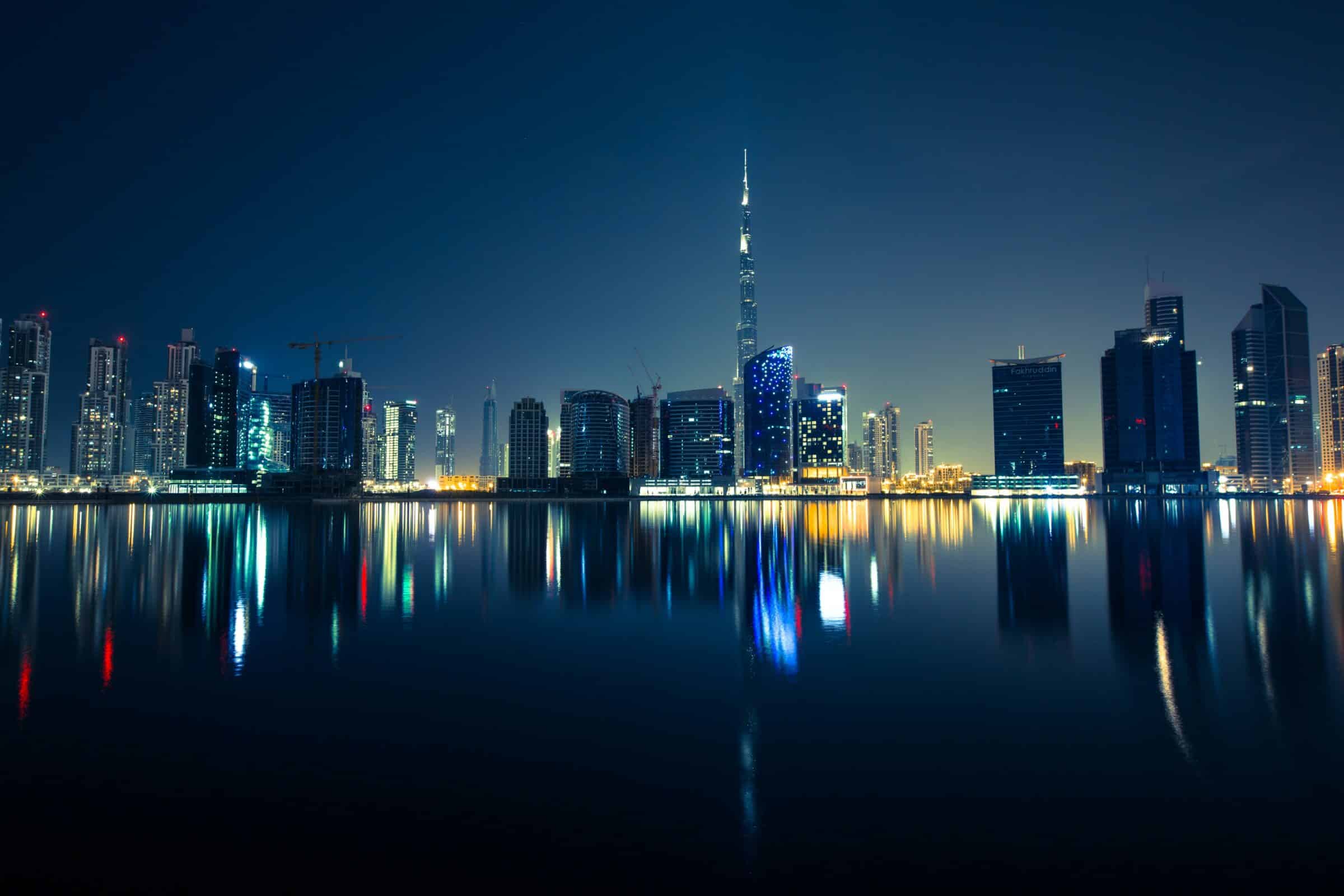The Internet of Things (IoT) in the Middle East is thriving, with many metropolises developing into smart cities in an effort to improve efficiency, sustainability, and quality of life.
One city that particularly stands out in this regard is Dubai – the bustling city known for its wealth, lifestyle, and exceptional developments.
With ambitions of being the world’s most advanced Internet of Things ecosystem, the Dubai City IoT strategy is undoubtedly one of the most comprehensive and ambitious IoT deployments the world’s yet seen.
Considering that the IoT market in the United Arab Emirates (UAE) was worth a total of $1.6 billion U.S. dollars in 2022, it’s hardly surprising that Dubai is leading the way in this rapidly growing sector.
Dubai has long been known as a hub for innovation and technological advancements, and with its Smart Dubai initiative, the city aims to transform itself into a global smart city leader by harnessing the power of IoT.
This post will delve into the Dubai IoT strategy, exploring how the stakeholder’s vision and implementation is progressing in various areas of the city and its potential impact on the future of Dubai.
What is the Dubai Internet of Things Strategy?
Announced in October 2017, the Dubai IoT strategy represents a pioneering effort to construct a high-tech, interconnected city of the future.
The strategy, a key element of the Smart Dubai initiative, aspires to establish Dubai as the most advanced IoT ecosystem globally.
Dubai city governance leader’s strategic vision is based upon four strategic pillars: infrastructure, legislation, innovation, and human capital.
Each pillar plays a crucial role, from creating the physical and digital infrastructure necessary for IoT, developing robust legislation to govern its use, fostering a culture of innovation to sustain growth, and nurturing human capital to drive the IoT landscape forward.
With the power of some of the world’s most advanced technology, Dubai aims to create a highly functional and efficient network of IoT sensors and devices powered by IoT SIM cards that will improve the quality of life for the smart city’s residents and further boost their local economy.
Furthermore, the strategy embodies environmental goals, with the aim of making the city 100% paperless, saving potentially millions of trees in the process.
The Dubai IoT strategy is one that matches the economic development, ambition and trends in the UAE, with a key focus on high-level technology-focused initiatives leading to a more diverse economy.
So far, we can say that the smart city’s vision of IoT has been a noteworthy success.
In fact, Dubai’s current IoT infrastructure is worth more than 69.78 trillion AED, thanks to the Dubai IoT strategy improving the city’s GDP by 10.4 billion AED since 2021.
In addition to the four crucial pillars, there are six key domains of the Dubai IoT strategy that drive and direct its implementation. These domains include:
- Governance: Effective and transparent governance of IoT technology in Dubai
- Management: Streamlined management of IoT sensing technology across Dubai’s IoT smart city infrastructure.
- Monetisation: Discover opportunities to monetise opportunities within the IoT ecosystem.
- Acceleration: Improved and accelerated deployment of IoT-based smart solutions.
- Security: Address all risks of interoperability and security with the deployment of IoT sensors.
- Deployment: Efficiently deploy a network of IoT sensors and devices in the city.
Four Phases of the Dubai IoT Strategy
The Dubai IoT strategy encompasses four distinct phases, each with its own objectives, goals, and outcomes.
Initially, there were aims for all four phases to be complete by 2019 – something that has not happened yet due to the complexity of the project.
Phase One: Coordination
The first phase of the Dubai IoT strategy, Coordination, primarily focuses on establishing a robust organisational framework designed to minimise the risks associated with integration and convergence.
This stage involves the careful orchestration of multidisciplinary teams and technological resources to create a seamless, interconnected IoT ecosystem.
Efficient communication, collaboration, and effective decision-making processes are vital components to ensure flawless integration of IoT sensors and devices throughout the city.
This phase lays the foundation for the successful deployment of IoT, setting a sturdy base for the subsequent stages of the strategy.
Phase Two: Integration and Convergence
The second phase of the Dubai IoT strategy, referred to as Integration and Convergence, primarily centres around the construction of added value through the comprehensive integration and convergence of IoT technologies across the city.
This vital phase involves aligning and connecting disparate IoT devices and systems, fostering interoperability, and ensuring seamless data exchange.
The aim is to create a cohesive IoT ecosystem that can provide advanced services and solutions across multiple sectors, including transportation, healthcare, energy, and public services.
Through this phase, Dubai aims to unlock the full potential of IoT, harnessing it to improve the city’s efficiency, economic competitiveness, and quality of life for its residents.
Phase Three: Optimisation
The third stage of the Dubai IoT strategy, Optimisation, focuses on the integration and optimisation of the management framework for the entire IoT ecosystem.
This phase involves streamlining processes, improving operational efficiencies, and maximising the use of resources to ensure the IoT ecosystem’s smooth and efficient functioning.
It includes the development and implementation of sophisticated algorithms and advanced analytical tools to aid in monitoring, managing, and optimising the interconnected network of IoT devices and systems.
The aim is to create an environment that can adapt and respond to changing requirements and conditions effectively.
Through this phase, Dubai aims to leverage IoT to its full capacity, enhancing service provision, improving citizen experiences, and driving the city’s overall sustainability and growth.
Phase Four: Blockchain Journey
The fourth and final phase of the Dubai IoT strategy, aptly termed the ‘Blockchain Journey’, centres on the ambitious goal of self-regulating IoT ecosystems based on Blockchain technology and the ‘economy of things’.
The Blockchain Journey phase envisions a future where IoT devices autonomously transact and communicate, underpinned by the principles of Blockchain technology.
The inherent features of Blockchain, such as security, immutability, and decentralisation, lend themselves to the creation of a robust, resilient, and secure IoT infrastructure.
It aims to revolutionise the way devices interact, fostering a sense of independence and reliability, and creating a truly interconnected and self-sustaining digital city.
Throughout this phase, Dubai endeavours to become a global leader in the adoption of Blockchain in IoT, marking a significant stride in its transformation into a fully-fledged ‘Smart City’.
How is IoT in Dubai Used?
While years have passed since 2017, as have some of the initial deadlines noted in the original Dubai IoT strategy.
However, that is not to say there has been a lack of ambition or development – in fact, it is quite the opposite.
In the realm of transportation, for instance, IoT-powered systems aid in real-time traffic management and smart parking solutions, enhancing the city’s transport efficiency.
The healthcare sector is another major benefactor, with IoT devices enabling remote patient monitoring, chronic disease management, and improved emergency response times.
Moreover, the utility sector has seen the advent of advanced smart meters and grids, optimising energy usage and reducing environmental impact within the smart city’s communities.
From tourism and hospitality to public safety, the integration of IoT in Dubai has resulted in comprehensive digital transformation, profoundly reshaping the city’s functionality and inhabitants’ lifestyles.
Challenges of IoT in Dubai
Despite the incredible strides made with IoT technology in Dubai, there are several IoT challenges to be surmounted and overcome to secure a successful and sustainable deployment of their IoT infrastructure.
Data and Security
One of the most significant challenges with any IoT operation is data privacy and security.
Considering that IoT devices collect and share vast amounts of data, it is crucial to ensure this information remains secure and managed with the utmost regard for privacy.
To combat this challenge, Dubai has implemented strict regulations and standards for data handling and security to protect its citizens’ information.
Infrastructure and Connectivity
Another challenge is the need for robust, reliable infrastructure and seamless connectivity to support the vast network of IoT devices.
As the smart city’s ecosystem expands, the demand for data transmission and processing also increases, putting a strain on existing infrastructure.
To address this challenge, Dubai has made significant investments in building advanced telecom infrastructure and implementing 5G technology to support its growing IoT network.
Inoperability and Standardisation
Another challenge is interoperability; with various devices and systems from different manufacturers, seamless communication and interaction can be difficult to achieve.
This challenge is addressed through the standardisation of protocols and frameworks, enabling devices from distinct brands to work together efficiently.
Training
Finally, developing the necessary skills and knowledge within the workforce to manage and optimise the use of IoT technologies also presents a significant hurdle.
To overcome this, Dubai has introduced various training programmes and initiatives to upskill its workforce in IoT-related fields.
Worldwide IoT Connectivity with Caburn Telecom
In conclusion, the implementation of IoT technology in Dubai has been a major catalyst for digital transformation and development. Through its comprehensive strategy, the city aims to harness IoT’s full potential to enhance efficiency, improve citizen experiences, and drive sustainability and growth.
With the rise of IoT, there is a growing need for reliable, global connectivity to ensure seamless communication between devices and systems.
Being an industry leader in the sector, Caburn Telecom offers worldwide IoT connectivity solutions, providing secure and scalable connectivity options for businesses and organisations looking to expand their IoT operations globally.
Contact us today to learn more about how our services can support your business’s IoT needs.



